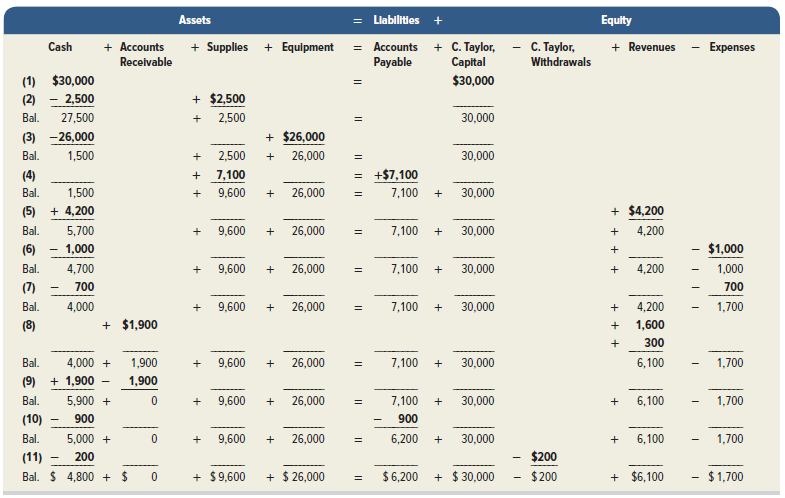Sanyu Sony started a new business and completed these transactions during December. Dec. 1 Sanyu Sony transferred
Question:
Dec. 1 Sanyu Sony transferred $65,000 cash from a personal savings account to a checking account in the name of Sony Electric.
2 The company rented office space and paid $1,000 cash for the December rent.
3 The company purchased $13,000 of electrical equipment by paying $4,800 cash and agreeing to pay the $8,200 balance in 30 days.
5 The company purchased office supplies by paying $800 cash.
6 The company completed electrical work and immediately collected $1,200 cash for these services.
8 The company purchased $2,530 of office equipment on credit.
15 The company completed electrical work on credit in the amount of $5,000.
18 The company purchased $350 of office supplies on credit.
20 The company paid $2,530 cash for the office equipment purchased on December 8.
24 The company billed a client $900 for electrical work completed; the balance is due in 30 days.
28 The company received $5,000 cash for the work completed on December 15.
29 The company paid the assistant€™s salary of $1,400 cash for this month.
30 The company paid $540 cash for this month€™s utility bill.
31 Sanyu Sony withdrew $950 cash from the company for personal use.
Required
1. Create the following table similar to the one in Exhibit 1.9.

EXHIBIT 1.9: Summary of Transactions Using the Accounting Equation

Use additions and subtractions within the table to show the dollar effects of each transaction on individual
items of the accounting equation. Show new balances after each transaction.
2. Prepare the income statement and the statement of owner€™s equity for the current month, and the balance
sheet as of the end of the month.
3. Prepare the statement of cash flows for the current month.
Analysis Component
4. Assume that the owner investment transaction on December 1 was $49,000 cash instead of $65,000 and that Sony Electric obtained another $16,000 in cash by borrowing it from a bank. Compute the dollar effect of this change on the month-end amounts for
(a) Total assets,
(b) Total liabilities, and
(c) Total equity.
Step by Step Answer:

Principles of Financial Accounting chapters 1-17
ISBN: 978-1259687747
23rd edition
Authors: John Wild, Ken Shaw, Barbara Chiappetta





